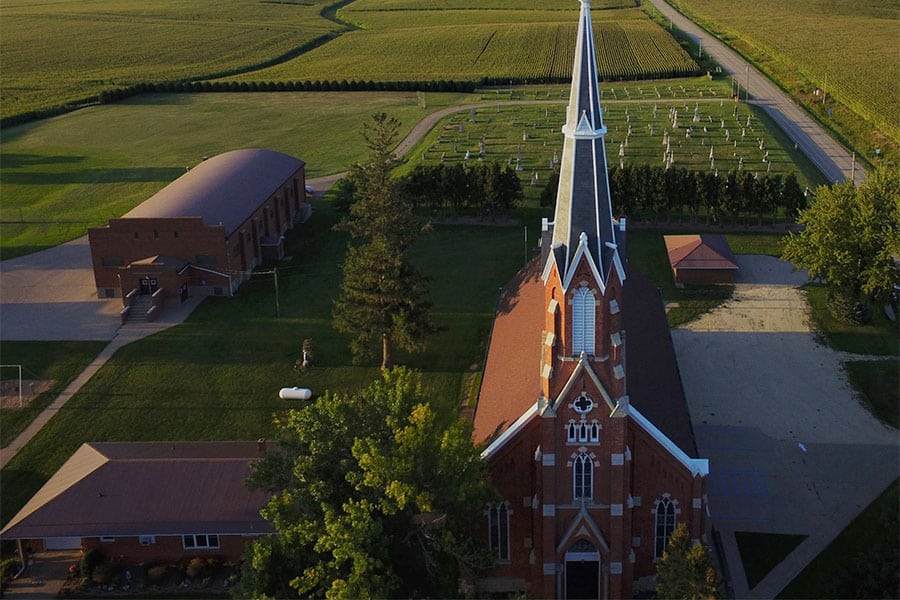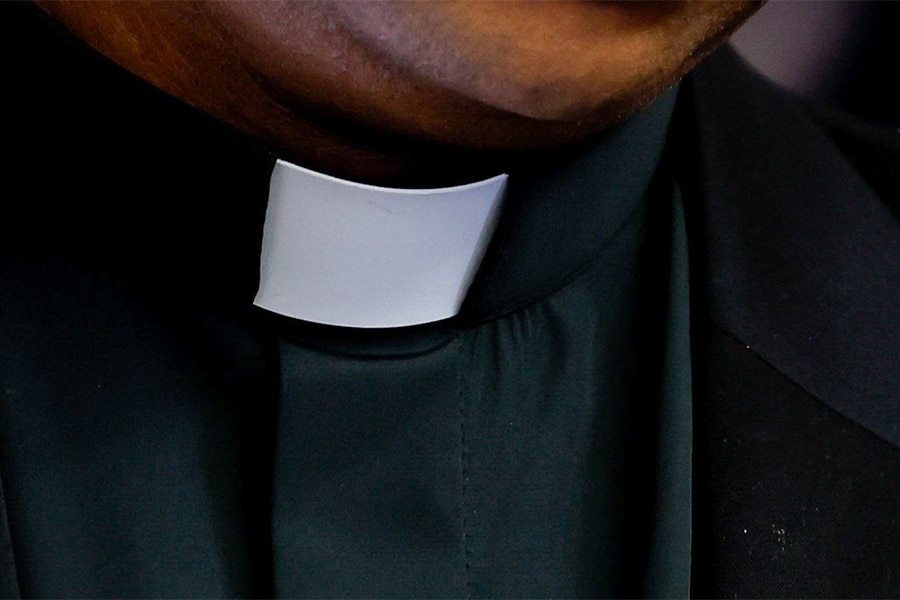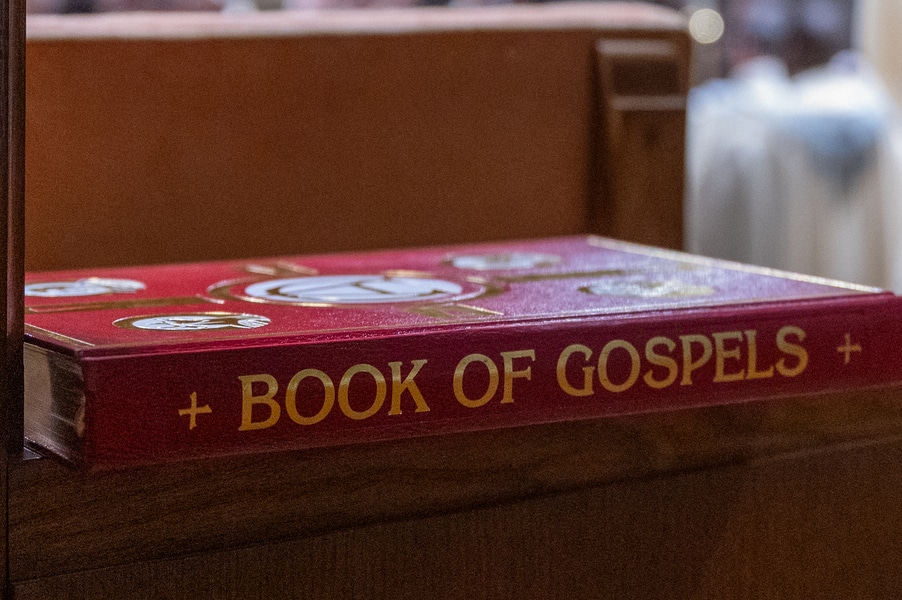Q. Please clarify something that I don’t understand when I am praying. In the Gloria at Sunday Mass, we say, “We praise you, we bless you, we adore you, we glorify you.” In Psalm 63, we pray, “I will bless you as long as I live; I will lift up my hands, calling on your name.” And in Psalm 103, we say, “Bless the Lord, my soul; all my being, bless his holy name!” My question is this: What does it mean for us to “bless the Lord”? How can we do that? (Indiana)
A. Your question makes sense: How can we, who have received all that we have from the Lord, bless God who possesses everything already? And the answer has to do with the Hebrew word for “bless.” It has the same root as the word for “kneel,” and it really means to “adore” God, to praise him for his magnificence and thank him for his abundant favors.
Psalm 103, for example, whose opening verse you quote, goes on to say: “Bless the Lord, my soul; and do not forget all his gifts, who pardons all your sins, and heals all your ills … and crowns you with mercy and compassion, who fills your days with good things.”
When God blesses us, we are helped and strengthened and made better off than we were; but when we “bless” God, that adds nothing to God’s greatness but simply indicates our wholehearted gratitude for his divine favors.
Q. I understand that the prohibition against eating meat on Friday was lifted with the expectation that we would choose another penitential practice instead. If I don’t do an act of sacrifice and still eat meat on Friday, am I committing a sin? (Suffolk, Virginia)
A. To answer that question, we do best to go back to the statement issued by the bishops of the United States in 1966 when they lifted the mandatory obligation of Friday abstinence. (The church’s law concerning this is a matter that can be determined by each national bishops’ conference for Catholics of that region.)
In that 1966 statement, the U.S. bishops said: “Friday should be in each week something of what Lent is in the entire year. For this reason, we urge all to prepare for that weekly Easter that comes with each Sunday by freely making of every Friday a day of self-denial and mortification in prayerful remembrance of the passion of Jesus Christ” (No. 23).
The use of the words “urge” and “freely” seem to me to be clear evidence that the obligation is not one binding under pain of sin. That conviction is further strengthened by a later section of this same document, which says: “We emphasize that our people are henceforth free from the obligation traditionally binding under pain of sin in what pertains to Friday abstinence” (No. 25).
Despite the lifting of the mandate, a fair number of Catholics continue to abstain from meat on Fridays, and that is surely consistent with the 1966 statement’s recommendation:
“Among the works of voluntary self-denial and personal penance which we especially commend to our people for the future observance of Friday, even though we hereby terminate the traditional law of abstinence binding under pain of sin … we give first place to abstinence from flesh meat. We do so in the hope that the Catholic community will ordinarily continue to abstain from meat by free choice as formerly we did in obedience to church law” (No. 24).
Among the other ways of voluntary sacrifice recommended by the 1966 statement are “doing volunteer work in hospitals, visiting the sick, serving the needs of the aged and the lonely, instructing the young in the faith” (No. 27).
More 'Question Corner'
Copyright © 2020 Catholic News Service/U.S. Conference of Catholic Bishops








